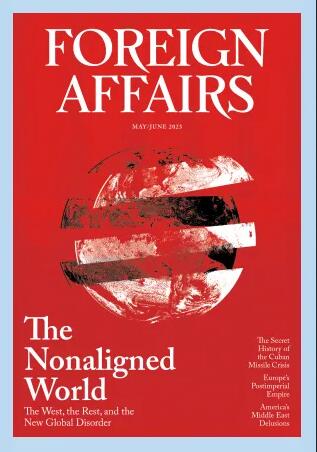Solving the Border Issues of the USA and Canada in the Field of Joint Use of Water Resources
IF 6.3
2区 社会学
Q1 INTERNATIONAL RELATIONS
引用次数: 0
Abstract
The relevance of the research topic is justified by the fact that the USA and Canada have significant fresh water reserves, but they also experience a shortage of this resource, despite the fact that they are among the top five countries with the richest water resources in the world. In order to ensure the water security of the region and preserve the Great Lakes in a favorable condition, the United States and Canada have worked closely together for many years and share the fresh water resources of the Great Lakes, which is an example for other countries of the world. Based on relevance, the main goal of the article is the analysis of urgent border issues of the USA and Canada in the field of joint use of water resources. It is shown that the USA and Canada have adopted 21 legally binding documents, which recognize that these countries have a responsibility to all people currently living on our planet and to future generations to ensure the safety of this water source in the interests of all mankind, and that a balanced ecosystem approach is used in these countries as part of the climate change adaptation measures. It has been found that since the 1980s, concern has arisen in both countries that the diversion of Great Lakes water outside the basin area may impose negative consequences for the ecosystem and limit the possibilities of using these water reserves in the future. It has been proven that the effectiveness of the Boundary Waters Treaty of 1909 and the Great Lakes Water Quality Agreement has decreased in the conditions of increasing competition for water resources in North America. The fact is substantiated that the current management and control system of the Great Lakes waters under the 1909 Treaty is the best of all existing systems, although it requires improvement. On the one hand, the USA and Canada become increasingly aware of the value of their wealth called the “Great Lakes”, but on the other hand, many trends indicate that the goal of states becomes joint cooperation for the purpose of preserving and enriching water resources as well as privatization and ensuring control over territories, including water, to meet their own needs. Besides the irrational use of water, which is observed both in water-poor regions of the United States and in waterrich regions of Canada, both sides of the border lack of vision for a unified water pricing policy. The article has practical significance for Ukraine, since the experience of the USA and Canada can be useful as an example of solving urgent problems in the field of providing our country with fresh water and preserving water resources解决美加在水资源共同利用领域的边界问题
研究课题的相关性是合理的,因为美国和加拿大拥有大量的淡水储备,但他们也经历了这种资源的短缺,尽管他们是世界上水资源最丰富的前五个国家之一。为了确保该地区的水安全,使五大湖处于有利的状态,美国和加拿大多年来密切合作,共享五大湖的淡水资源,这对世界其他国家来说是一个榜样。基于相关性,本文的主要目的是分析美国和加拿大在水资源共同利用领域的紧迫边界问题。结果表明,美国和加拿大已经通过了21项具有法律约束力的文件,这些文件承认这些国家对目前生活在我们星球上的所有人以及子孙后代负有责任,为了全人类的利益确保这一水源的安全,并且在这些国家采用平衡的生态系统方法作为气候变化适应措施的一部分。人们发现,自20世纪80年代以来,两国开始关注将大湖的水引到流域地区以外可能对生态系统造成负面影响,并限制今后利用这些水储备的可能性。事实证明,在北美对水资源竞争日益激烈的情况下,1909年的《边界水条约》和《大湖区水质协定》的有效性有所下降。事实证明,根据1909年《条约》对大湖水域的现行管理和控制制度是所有现有制度中最好的,尽管它需要改进。一方面,美国和加拿大越来越意识到他们被称为“五大湖”的财富的价值,但另一方面,许多趋势表明,国家的目标是为了保护和丰富水资源以及私有化和确保对包括水在内的领土的控制,以满足自己的需要而进行联合合作。除了在美国的水资源匮乏地区和加拿大的水资源丰富地区都观察到的不合理用水之外,边界两侧都缺乏统一的水价政策的远见。本文对乌克兰具有现实意义,美国和加拿大的经验对解决我国淡水供应和水资源保护领域的紧迫问题具有借鉴意义
本文章由计算机程序翻译,如有差异,请以英文原文为准。
求助全文
约1分钟内获得全文
求助全文
来源期刊

Foreign Affairs
INTERNATIONAL RELATIONS-
CiteScore
4.80
自引率
0.00%
发文量
2
期刊介绍:
Founded in 1922, Foreign Affairs is a prominent American magazine that focuses on international relations and U.S. foreign policy. It is published by the Council on Foreign Relations, an esteemed nonpartisan think tank and membership organization dedicated to analyzing U.S. foreign policy and global affairs. While the print magazine is released every two months, the website offers daily articles and publishes anthologies every other month.
 求助内容:
求助内容: 应助结果提醒方式:
应助结果提醒方式:


